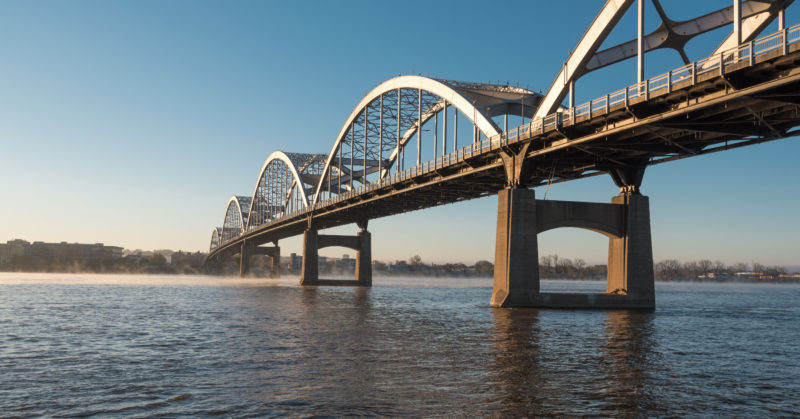By Nina Struss
For a place that is topographically separated by the Mississippi River, the Quad Cities is anything but divided. Situated at the only place where the Mississippi runs east to west, the Quad Cities (or QC, as us locals call it) actually consists of five cities nestled along the river: Rock Island, Moline, and East Moline (IL) and Davenport and Bettendorf (IA). I have called Rock Island home most of my life and can attest to the fact that the Quad Cities has all the excitement of a big city but with the hospitality of a small town.
Our towns are connected by the river through events like Floatzilla; the farmers market; Red, White and Boom; or through transportation on riverboats and the Channel Cat. Home to the 2013 “Best Minor League Ballpark,” Modern Woodmen Park is situated right along the river, making game views worth the ticket price. Residents are no stranger to flanking either side of the river for dining and shopping, although most of us will admit we prefer purchasing our gas in Iowa.

No Stranger to Flooding
As river towns, the Quad Cities are no stranger to flooding. I remember living through the Great Flood of 1993 through the lens of news anchors. My parents took me and my siblings out to see the devastation caused by the flood, but those details don’t seem to linger as well as the footage of huge numbers of people helping to save what was possible from flood damage. More recently, I remember watching the scenes captured by a downtown Davenport restaurant of the moment the levee broke in the flood of 2019. Finally, I watched as our towns were overcome with the river once again as the flood waters rose this spring.
What most of us are still learning, especially those living in the Midwest, is that flooding is not the only symptom of climate change in a river town. An accumulation of extreme weather events such as droughts, excessive heat, excessive cold, ice storms, derechos, wildfire smoke, and an increase in severe weather and tornadoes are all taking their turns here in the Midwest, and we are feeling the effects in the QC.
River Health and Resiliency
As PRN’s new River Health and Resiliency Organizer in the Quad Cities, I will be working with the National Wildlife Federation in the development of a climate vulnerability assessment in the QC region. Our goal in this work is to provide local leaders, decision-makers, and community members with relevant information about the Quad Cities’ future as it relates to the impacts of climate change. The driving force in the Quad Cities has always been the Mississippi River. The river sustains our cities by providing drinkable water, transportation, entertainment, and natural habitats for wildlife. As we deepen our work and network in this unique region, we will build a more resilient future for our communities. One that is better equipped to combat climate change, has safe and secure access to clean water, and in turn creates an even more beautiful and sustainable Quad Cities.







